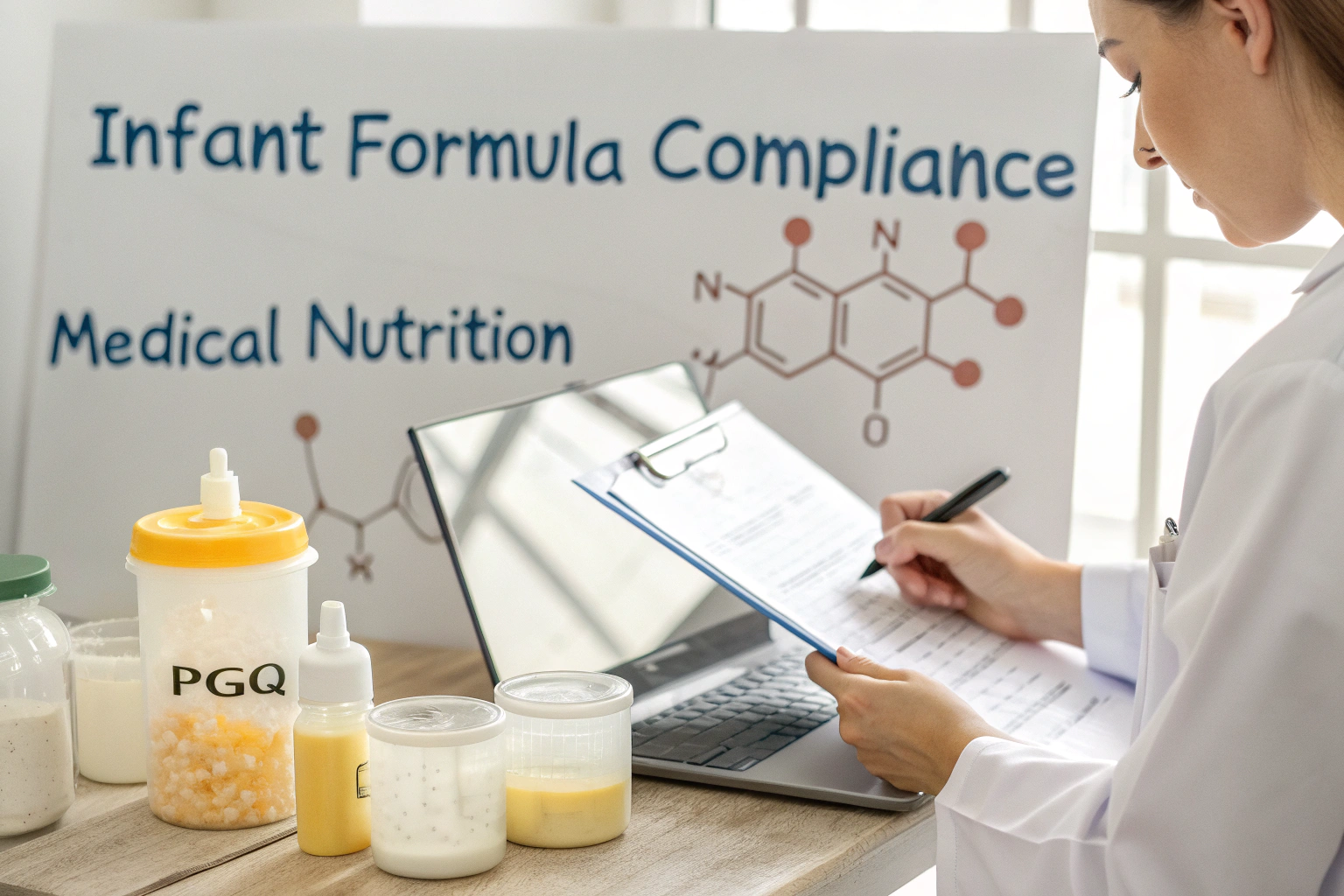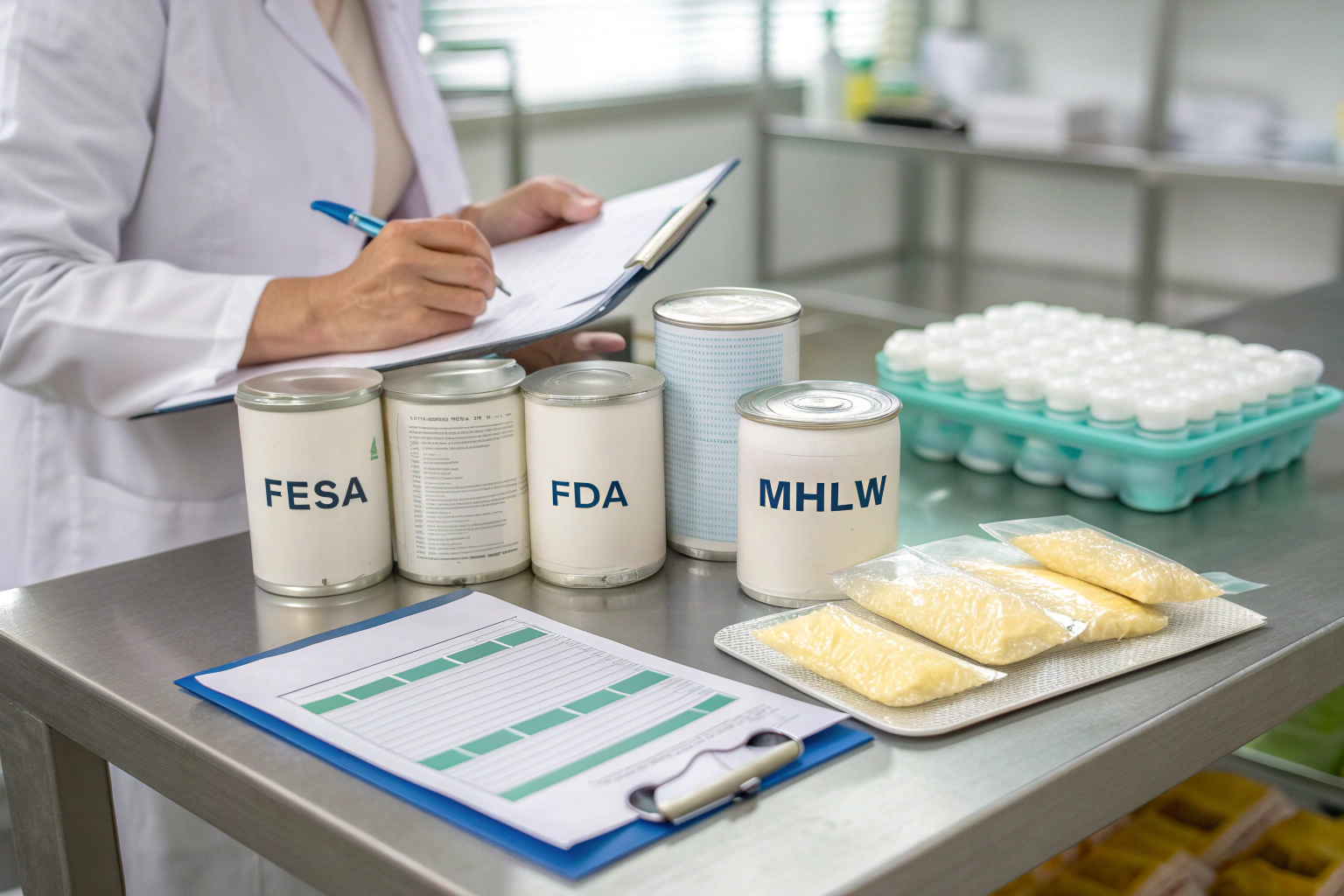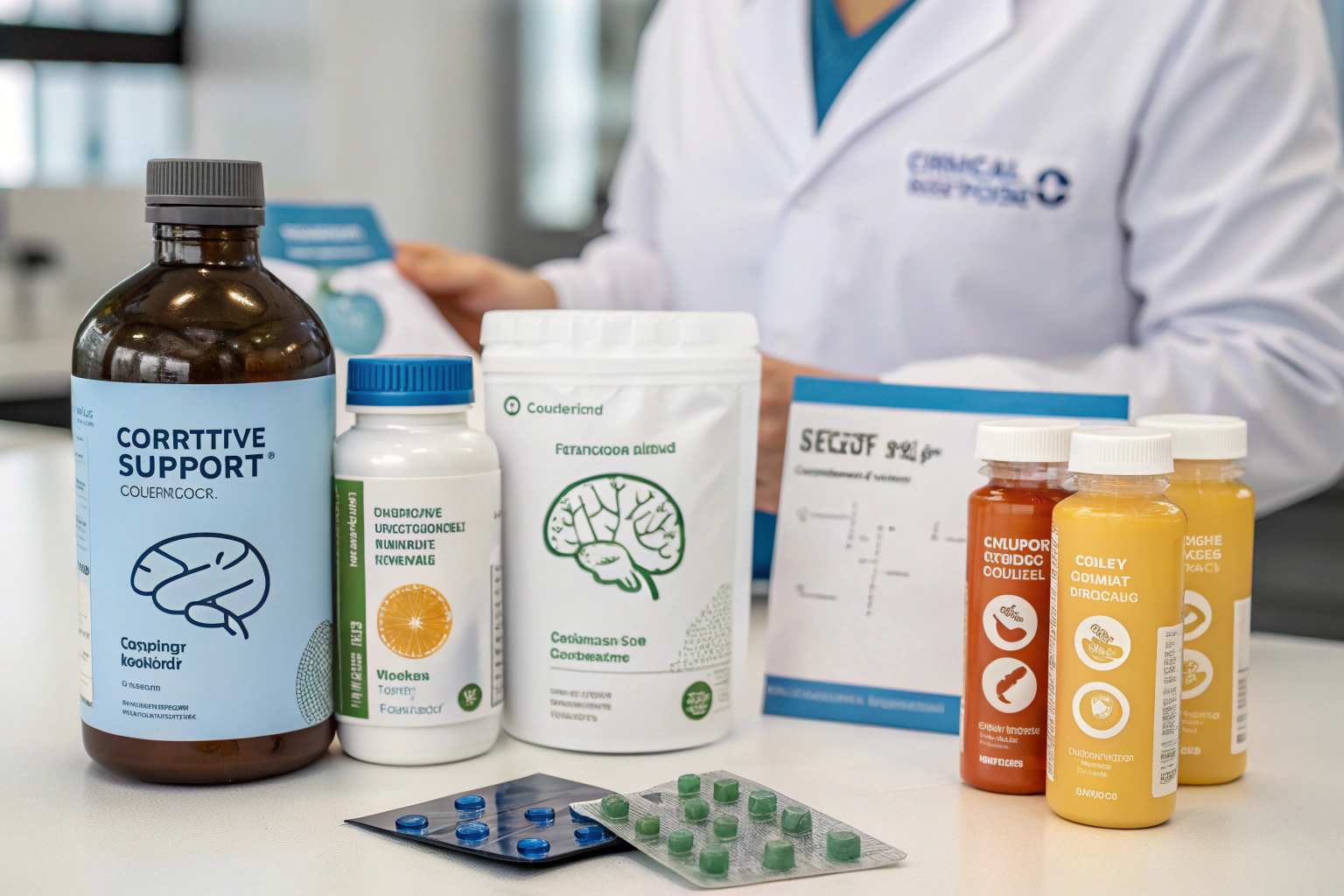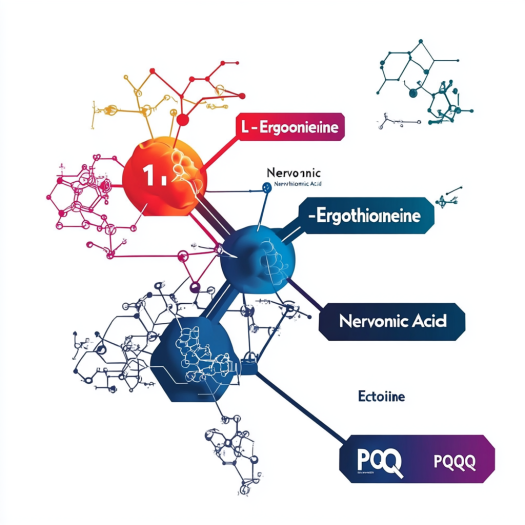
The first time someone asked me whether PQQ could be used in infant or medical nutrition, I paused. Not because I didn’t know the science—because I knew the stakes.
PQQ (Pyrroloquinoline Quinone) is not currently approved for use in infant formula in major markets like the U.S., EU, and Japan, but it is allowed in certain medical and adult functional foods under regulatory conditions, especially as a novel food or GRAS ingredient.
I’ve spent years helping supplement and functional food brands navigate ingredient regulations. When it comes to something as sensitive as infant and clinical use, it’s not just about purity or efficacy—it’s about policy, paperwork, and people’s lives.
Let’s dive into the facts—clearly, calmly, and completely.
Why Are Infant and Medical Food Regulations So Strict?
When we’re talking about babies or patients with fragile health, every molecule matters.
Infant formula and medical food products are regulated with extreme caution because the target populations—newborns and patients—have immature or compromised metabolic systems, making safety, bioavailability, and dosage limits far more critical than in general supplements.

You see, even if an ingredient like PQQ shows strong antioxidant or mitochondrial benefits in adults, that doesn’t automatically translate to approval in infant food. Regulatory bodies like the FDA, EFSA1, and MHLW (Japan) demand extensive toxicology data, pharmacokinetics, long-term safety, and sometimes even human neonatal studies2.
Here’s a quick look at how regulators handle ingredients for vulnerable groups:
| Product Category | Regulatory Body | Key Concerns |
|---|---|---|
| Infant Formula | FDA (U.S.) / EFSA (EU) / MHLW (Japan) | Brain development, kidney load, allergy risk |
| Medical Food | FDA (U.S.) | Ingredient function, purity, pharmacological interaction |
| Foods for Special Medical Purposes (FSMP) | EFSA | Controlled dosage, proven clinical relevance |
| General Dietary Supplement | Varies | Less strict, adult-focused data acceptable |
So where does PQQ stand in this landscape?
Is PQQ Approved for Use in Infant Formula?
This is the short and cautious answer:
As of now, PQQ is not permitted for use in infant formula products in major markets like the U.S., EU, Japan, or China due to the absence of safety data specific to infants.
This doesn’t mean it’s unsafe—it means regulators want bulletproof evidence for this population. And that makes sense. Newborn kidneys, brains, and immune systems are still developing, and even low-dose actives need their own data set.
Even though PQQ occurs naturally in breast milk and human tissues, regulatory acceptance requires:
- Neonatal-specific toxicology reports
- Long-term developmental safety trials
- Data on renal clearance and metabolic impact in infants
So even though it sounds logical to include PQQ in baby formulas for mitochondrial support, no global authority has approved it for that yet.
Can PQQ Be Used in Medical or Functional Foods?
Now here’s where things shift—because adults (even those with health issues) are a different regulatory story.
Yes, PQQ is allowed in medical foods and adult-targeted functional nutrition products in markets like the U.S. (under GRAS status) and the EU (as a Novel Food), but only at defined dosages and purity levels.

Let me break it down based on region:
| Region | PQQ Status | Medical or Functional Food Use? |
|---|---|---|
| United States | GRAS notified3 | Yes, for adults |
| EU | Novel Food Approved4 | Yes, 20 mg/day max |
| Japan | FFC (Foods with Function Claims) | Yes, with claim validation |
| China | New Resource Food (draft) | Not yet approved |
| Australia/New Zealand | FSANZ reviewing | Restricted to supplements |
That means if you’re developing:
- Clinical nutrition shakes
- Recovery formulas for the elderly
- Mitochondrial-targeted support for chronic fatigue
…then yes, PQQ can be included, as long as you’re targeting adults and following regulatory dose limits.
In the U.S., the GRAS notification covers PQQ disodium salt (BioPQQ-type), allowing use in beverages, functional foods, and tablets.
What Dosages of PQQ Are Considered Safe?
Let’s talk numbers. This is where many brands get nervous—but they shouldn’t. The science is on our side.
PQQ is considered safe for adults at doses up to 20 mg/day in supplements and functional foods, with no adverse effects observed in human studies up to 80 mg/day for short periods.
Here’s a summary based on available safety assessments:
| Study Source | Max Safe Daily Dose | Comments |
|---|---|---|
| EFSA Novel Food Opinion (2018) | 20 mg/day | Adult food use approved |
| FDA GRAS Notification (2017) | 12 mg/day (routine), up to 20 mg | In food & beverage applications |
| Clinical Trial (Japan) | 20–80 mg/day | No organ toxicity at higher doses |
| No-Observed-Adverse-Effect Level (NOAEL) | ~100 mg/kg BW in animals | Extrapolated for human safety |
So, while the infant formula door is still shut, there’s strong support for adult use—especially in patients needing mitochondrial support, anti-fatigue solutions, or metabolic recovery.
That’s why we’ve formulated Santa Biotech’s PQQ at 99.9% purity with no solvents, ready to meet these clinical-grade expectations.
Are Any Brands Using PQQ in Clinical or Functional Food Products?
You’d be surprised how quietly some global brands have integrated PQQ—without shouting about it from the rooftops.
Yes, several supplement and functional nutrition brands in Japan, the U.S., and Korea are using PQQ in brain health drinks, recovery formulas for elderly patients, and even mental clarity beverages for busy professionals.
Here are some anonymized examples:
| Country | Brand Type | Application | Format |
|---|---|---|---|
| Japan | Healthy Aging | Cognitive function for seniors | Sachets |
| USA | Clinical Nutrition | Fatigue support in post-surgery patients | Oral powder |
| Korea | Work Stress | Anti-fatigue supplement for office workers | Tablets |
| Germany | Memory Focus | Neuro booster for older adults | Capsules |
One of our clients in Europe launched a medical shake for MS patients containing PQQ + CoQ10 + B-complex. Feedback? Better mental clarity and reduced crash after exertion.
That’s the beauty of PQQ—it works at the cellular level, regardless of your age.
What’s Needed for PQQ to Be Approved in Infant Products?
Now, let’s peek ahead—because many clients ask, “What would it take to get there?”
For PQQ to be allowed in infant food, manufacturers or ingredient developers would need to submit a full safety dossier including neonatal studies, pharmacokinetics in infants, and data showing long-term developmental safety.
This would include:
- Genotoxicity and reproductive toxicity studies in neonatal models
- Developmental neurotoxicity assessment
- Infant kidney and liver clearance models
- Breast milk concentration comparisons
- Human infant exposure trials (extremely rare and expensive)
Frankly, it’s a huge undertaking—one that few suppliers are willing to risk unless a major infant formula player pushes for it.
At Santa Biotech, we’re keeping a close eye. But until we have the science, we won’t speculate or overpromise. Instead, we focus on ensuring our PQQ is ideal for safe adult formulations, especially in functional and medical nutrition.
Conclusion
PQQ is not yet allowed in infant formula, but it is approved for use in adult functional and medical foods under specific regulatory conditions and dosages.
If you’re developing products for cognitive support, fatigue recovery, or mitochondrial health—and you’re targeting adults—Santa Biotech’s PQQ is your go-to option for clean, compliant sourcing.
Infant approval may be a future milestone—but today, there’s a world of real benefits already waiting to be delivered.
-
Learning about EFSA guidelines can help you understand the regulatory framework for infant food in Europe. ↩
-
Exploring the significance of these studies can highlight their impact on ensuring infant food safety and efficacy. ↩
-
Understanding GRAS notification can help you navigate food safety regulations effectively. ↩
-
Learn about Novel Food regulations in the EU to ensure compliance for your products. ↩

